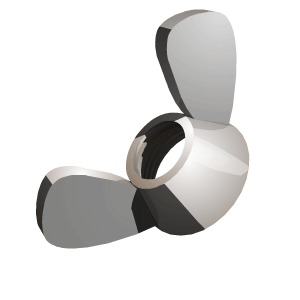By Garrison Keillor
I have made fun of Lutherans for years — who wouldn't if you lived in Minnesota? But I have also sung with Lutherans and that is one of the main joys of life, along with hot baths and fresh sweet corn. We make fun of Lutherans for their blandness, their excessive calm, their fear of giving offense, their constant guilt that burns like a pilot light, their lack of speed and also for their secret fondness or macaroni and cheese. But nobody sings like them.
If you ask an audience in New York City, a relatively "Lutheranless" place, to sing along on the chorus of "Michael Row the Boat Ashore" they will look daggers at you as if you had asked them to strip to their underwear. But if you do this among Lutherans they'll smile and row that boat ashore and up on the beach and down the road! And Lutherans are bred from childhood to sing in four-part harmony. It's a talent that comes from sitting on the lap of someone singing alto or tenor or bass and hearing the harmonic intervals by putting your little head against that person's rib cage. It's natural for Lutherans to sing in harmony. We're too modest to be soloists, too worldly to sing in unison. And when you're singing in the key of C and you slide into the A7th and D7th chords, all two hundred of you, it's an emotionally fulfilling moment.
Now it's necessary, when talking about hymn singing, to say a word about organists. Johann Sebastian Bach was an organist and so there is some precedent for the position, but let's face it—as "organ"-izing has prospered, congregational singing has suffered. The truth is that Bach was mad at the elders of his church there in Leipzig, who mistreated him left and right, and he used the organ as an instrument of punishment against them! And this tradition has continued in the Lutheran church.
Most organists play much too loud perhaps because they are deaf or because they imagine that pulling out the stops to make the organ sound like a sawmill will encourage people to sing louder. Instead, it tends to drive Lutherans toward Unitarianism, where "organ"-izing tends to be light and murmury, like the preaching. Unitarians don't sing big rousing hymns about redemption. Most of their hymns are about the delights of horticulture or about the Spirit of Counseling in the world. Thus, out of an aversion to organs, many Lutherans are driven into the shallows of theology.
I once sang the bass line of "Children of the Heavenly Father" in a room with about three thousand Lutherans in it; and when we finished we all had tears in our eyes, partly from the promise that God will not forsake us, partly from the proximity of all those lovely voices. By our joining in harmony, we somehow promise that we will not forsake each other. I do believe this: people who love to sing in four-part harmony are the sort of people you could call up when you're in deep distress. If you're dying, they'll comfort you. If you're lonely, they'll talk to you. If you're hungry, they'll give you tuna salad!
